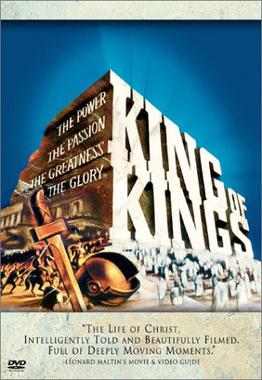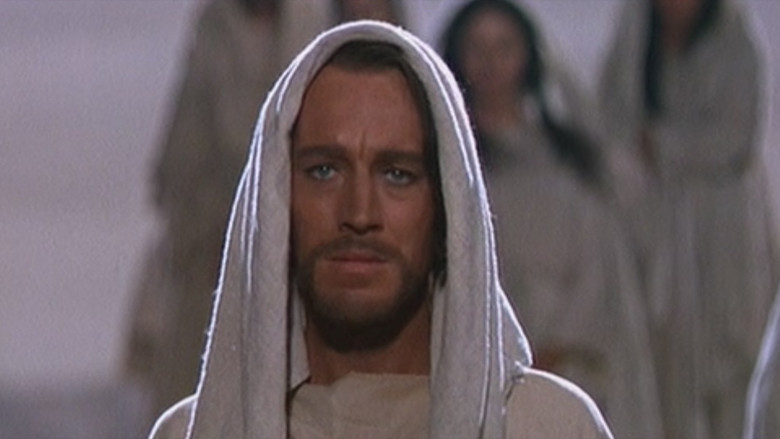- Also Known As:
- George Stevens Presents The Greatest Story Ever Told
- Version:
- Language:
- Length:
- 191 minutes: Uncut
- Review Format:
- DVD
- Year:
- 1965
- Country:
- Predominant Genre:
- Historical
- Director:

- Outstanding Performances:



- Premiss:
- The life of Jesus.
- Themes:
- Alienation | Art | Christianity |
Coming-of-age | Compassion | Courage | Curative | Destiny | Emotional repression | Empathy | Friendship | God | Grieving | Humanity | Identity | Individualism | Justice | Loneliness | Love | Loyalty | Mankind | Materialism | Narcissism | Personal | Personal change | Political | Political Correctness | Preventive | Rationality | Redemption | Role modeling | Sadomasochism | Schizophrenia |Self-Esteem | Solipsism | Totalitarianism - Similar to:


He is not the Messiah – he’s a very naughty boy.
Portentous, literal and rather leaden attempt to bring Christ’s teachings to a Hollywood epic - in the style of a filmmaker who only understands the words but, like a child, does not understand their meaning. The film takes itself very seriously, stifling any opportunities to explore or infer both character and story. It is both sincere and
Really little more, then, than a collection of cinematic tableaux vivants that, unsurprisingly, inspired much of the parody of Monty Python’s Life of Brian. The religious poetry is nullified by the movie’s religious fundamentalism aimed at the childish who cannot see the flaws in The Christ’s ideas: The narcissism, the Death worship, the schizophrenia, etc. (A
The lack of numinousness in this telling also saps much emotion from the drama; leaving behind a








No comments:
Post a Comment